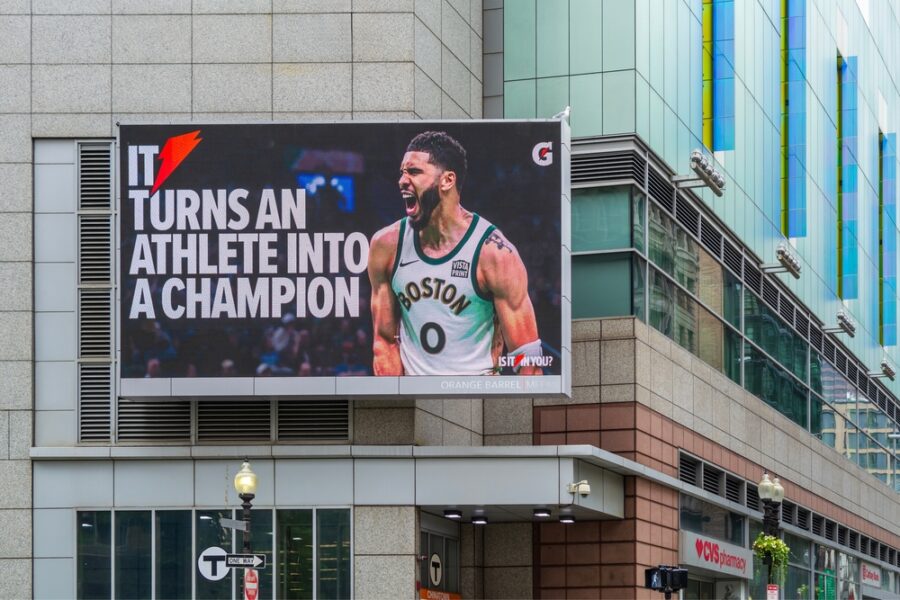Kalshi pushes into NBA props as integrity investigations widen

Kalshi introduced player prop markets tied to the NBA this past weekend, expanding its sports-related event contracts at a time when scrutiny of individual-performance wagers is on the rise across US sports.
According to Front Office Sports, the federally regulated prediction platform offers over/under markets on points, rebounds, assists, and three-pointers for about 50 players.
Individual trading limits will be capped at US$10,000. The company said the product has been designed with additional safeguards.
“It’s going to be limited,” Sara Slane, a spokeswoman for Kalshi told Front Office Sports. “We have robust integrity protections in place.”
Slane said the firm has imposed trading bans on NBA players, coaches, and team personnel. She added, “we are all over this. We have 24-hour monitoring.”
The development lands amid a series of investigations involving alleged manipulation of prop-style outcomes.
Federal prosecutors recently charged two Cleveland Guardians’ pitchers over an alleged pitch-fixing scheme in MLB, while a separate probe linked several NBA figures to the misuse of confidential information.
In New Jersey, state authorities charged 14 people on Thursday in a college-athlete betting case tied to organized crime.
Kalshi introduced NFL props this year and is simultaneously fighting state-level claims that its contracts amount to illegal sports betting. Competition also is growing, with Polymarket restarting US operations after facing delays, and major sportsbook operators preparing prediction-market products of their own.
Verticals:
Sectors:
Topics:
Dig Deeper
The Backstory
Context for Kalshi’s next test
Kalshi’s move into NBA player props lands at the intersection of product expansion and intensifying integrity scrutiny. The federally regulated prediction platform is layering basketball onto a growing slate of event contracts and says it has added guardrails, including bans on participation by league insiders and round-the-clock monitoring. The approach mirrors the rollout of its NFL props earlier this year, but the timing is more charged: investigations tied to prop-style manipulation are widening, leagues are pressing Washington on oversight gaps, and competitors are racing to capture retail demand for bite-size, performance-based markets.
The competitive picture is shifting, too. Polymarket has restarted U.S. operations and major sportsbooks are preparing prediction-style products, setting up a contest over price, limits and compliance posture. Front Office Sports detailed the NBA prop rollout, including over/under markets for points, rebounds, assists and three-pointers with individual limits of $10,000. That scale, paired with promised surveillance, is designed to signal restraint to regulators while responding to traders’ appetite for granular, event-driven outcomes.
Integrity probes reshape the risk calculus
The federal lens on prop manipulation grew sharper this year. Prosecutors charged two Cleveland Guardians pitchers over alleged pitch-fixing in MLB, and a separate inquiry linked NBA figures to misuse of confidential information. Most notably for basketball props, a federal investigation into a suspected NBA gambling ring has traced illegal wagers not only to NBA player props but also to bets against several men’s college programs, including Eastern Michigan, Mississippi Valley State and North Carolina A&T. Three North Carolina A&T players were suspended indefinitely for violating team rules; officials have not said whether the suspensions are tied to gambling allegations. The NCAA said it is coordinating with integrity monitors and state regulators.
These cases underscore regulators’ core concern: prop markets that hinge on individual performance can be easier to influence than team outcomes, particularly among lower-paid athletes or staff with access to injury or strategy information. As prop menus proliferate, the compliance burden rises around insider lists, anomalous trading detection and instant information-sharing with leagues and sportsbooks. For Kalshi, the NBA launch tests whether a futures-style platform can run prop markets at retail scale without attracting the wrong kind of volatility.
Who polices prediction markets?
Leagues are escalating their calls for clarity. The NBA recently sent a letter to the Commodity Futures Trading Commission urging tighter controls on sports prediction contracts and warning that player props, officiating-related wagers and injury-linked markets could undermine game integrity. The league drew a distinction between its support for legal sports betting—where state regulators oversee operators with dedicated resources—and event contracts overseen by the CFTC, which lacks a unit focused on sports.
The NBA’s intervention followed a communication from the Michigan Gaming Control Board that raised similar alarms, according to the same correspondence. The through-line: a call to either halt or narrowly tailor sports-related contracts and, if permitted, to impose sport-specific rules around insider controls, market suspensions and data-sharing protocols. Kalshi, which is fighting state-level claims that its contracts constitute illegal sports betting, now faces a two-front argument—jurisdictional challenges from states and integrity-focused scrutiny from a federal regulator that is still working through the proper framework for sports markets.
Why sportsbooks and prediction platforms are on different tracks
The NBA’s case to the CFTC also spotlights a structural split. Sportsbooks operate under state-by-state regimes with licensing, audits and dedicated enforcement staff. Prediction platforms, by contrast, fit under commodities rules designed for hedging and price discovery in non-sports events. That mismatch raises questions: What counts as a “hedge” in a player prop? How should position limits, market halts and insider definitions map to a live game environment?
Those questions are not academic. They drive whether traders can take large positions on individual stat lines and how quickly a platform must halt or void a market when late-breaking injury news surfaces. They also affect league cooperation. The NBA signaled it is open to engaging “on specific regulatory provisions” if contracts continue, a nod that the path forward may involve bespoke guardrails—tighter limits, automated lockouts for team-affiliated accounts, and faster alert pipelines between platforms, sportsbooks and leagues.
Signals from abroad: a tougher posture on integrity
The U.S. debate is unfolding as overseas regulators harden standards around gambling conduct and payments—moves that, while not directly aimed at prediction markets, indicate where the compliance wind is blowing. In Brazil, the International Betting Integrity Association launched a Payment Provider Forum with firms including Z.ro Bank, OKTO and Pay4Fun to counter financial fraud linked to match fixing. The initiative ties payment companies into a global integrity monitoring network to spot suspicious flows earlier across operators and jurisdictions.
Elsewhere, regulators are pushing brand and marketing accountability as part of the integrity toolkit. The Philippine gaming regulator PAGCOR ordered a licensee to end an advertising sponsorship with an online TV program it deemed inappropriate, citing the need to “ensure the integrity” of the industry and reiterating strict know-your-customer rules. In Indonesia, President Prabowo Subianto is moving toward firmer online gambling regulations after authorities blocked tens of thousands of ads and shut down hundreds of thousands of illegal items across platforms. The government says transaction volumes have fallen, but enforcement continues to ramp.
The common thread: tighter coordination between regulators, payments and operators, along with broader expectations for surveillance, content standards and customer vetting. For a U.S. prediction platform courting mainstream sports users, these global moves hint at the baseline that Washington and statehouses may soon expect.
What’s at stake for Kalshi and its rivals
Kalshi’s NBA launch is a litmus test for whether a CFTC-regulated venue can offer individual-performance markets without exacerbating integrity risk. Success would strengthen the case that prediction markets can coexist with state-regulated sportsbooks, each serving different customer segments under different rulebooks. Missteps—especially around insider access or slow response to suspicious activity—would bolster calls from leagues and state regulators to curtail or prohibit such contracts.
The competitive calculus is just as sharp. With sportsbooks building prediction-style features and crypto-native venues vying for volume, speed to market matters—but so does trust. The platforms that translate league concerns into concrete controls, share data proactively and demonstrate disciplined limits are more likely to win staying power. The alternative is a regulatory reset that narrows offerings and pushes users back to offshore or unregulated channels, where integrity problems began.








